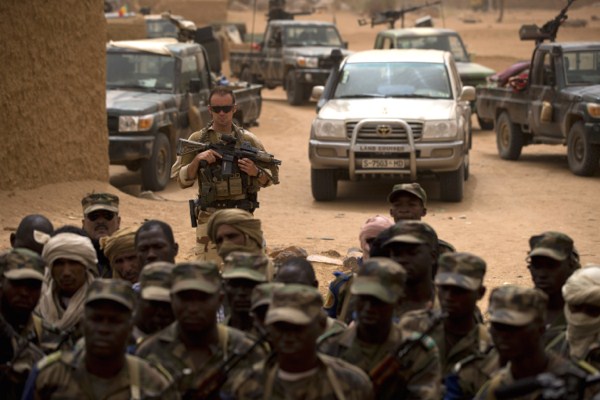On March 11, French Defense Minister Jean-Yves Le Drian unveiled an updated version of the Military Programming Law for 2014-2019, a five-year blueprint for the country’s force structure and defense budget that will be debated in Parliament in June. As part of the revised law, previous plans to reduce the armed forces have been walked back, with the government announcing new investment to meet persistent threats at home and abroad. However, in a climate of stagnant economic growth and austerity-driven fiscal constraints, doubts persist about how sustainable this approach is.
Le Drian’s announcements are a direct consequence of the Charlie Hebdo and Hyper Cacher terrorist attacks in early January that killed 17 people in addition to the three perpetrators, and triggered a massive emotional response throughout the country and around the world. However, they also reflect the French military’s increased engagement in recent years, including in Mali, the broader Sahel region and the Central African Republic (CAR), and most recently as part of the air campaign in Iraq targeting the so-called Islamic State. The regional threat posed by Boko Haram as well as Libya’s drawn-out collapse may lead to further operations in Sub-Saharan and Northern Africa.
The threat posed by jihadi terrorists, both abroad and at home, continues to be France’s main security concern. To date, an estimated 1,400 French citizens have traveled to Syria and Iraq. According to the government, 90 have died there and 200 have traveled back to France. This has had important implications both domestically and internationally.

